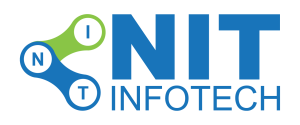Creating an optimal robots.txt file for a WordPress website involves balancing the need to keep certain areas private while allowing search engines to access important content for indexing. Below is an example of a well-rounded robots.txt configuration for a typical WordPress site:
Robots.txt File for WordPress
User-agent: *
Disallow: /wp-admin/
Allow: /wp-admin/admin-ajax.php
Disallow: /wp-includes/
Disallow: /wp-content/plugins/
Disallow: /wp-content/themes/
Disallow: /wp-content/cache/
Disallow: /wp-login.php
Disallow: /wp-register.php
Disallow: /xmlrpc.php
Disallow: /trackback/
Disallow: /cgi-bin/
Disallow: /comments/feed/
# Disallow URLs with specific query parameters
Disallow: /*?s=
Disallow: /*?replytocom
Disallow: /*?attachment_id=
# Block feeds
Disallow: /feed/
Disallow: /comments/feed/
# Block URL parameters for WordPress SEO
Disallow: /*?utm_source
Disallow: /*?utm_medium
Disallow: /*?utm_campaign
# Allow media files
Allow: /wp-content/uploads/
# Specify your sitemap location
Sitemap: https://www.yoursite.com/sitemap.xmlExplanation of Each Directive
1. User-agent: *
This means the rules apply to all web crawlers.
2. Disallow: /wp-admin/ and Allow: /wp-admin/admin-ajax.php
Blocks the entire admin area except for the admin-ajax.php file, which is necessary for certain functionalities like Ajax calls in plugins.
3. Disallow: /wp-includes/
Blocks the core WordPress files that are not necessary for crawlers to index.
4. Disallow: /wp-content/plugins/
Prevents indexing of plugin files.
5. Disallow: /wp-content/themes/
Prevents indexing of theme files.
6. Disallow: /wp-content/cache/
Prevents indexing of cache files.
7. Disallow: /wp-login.php and Disallow: /wp-register.php
Blocks the login and registration pages to avoid them showing up in search results.
8. Disallow: /xmlrpc.php
Blocks the XML-RPC file, which is not needed for search engines and can be a security risk.
9. Disallow: /trackback/ and Disallow: /cgi-bin/
Blocks trackback URLs and the cgi-bin directory.
10. Disallow: /comments/feed/
Prevents indexing of comment feeds.
11. Disallow URLs with specific query parameters:
Blocks search results, reply comments, and attachment pages to avoid duplicate content issues.
12. Block feeds:
Prevents indexing of various feed URLs.
13. Allow: /wp-content/uploads/
Ensures that media files such as images are indexable by search engines.
14. Sitemap: https://www.yoursite.com/sitemap.xml
Specifies the location of your sitemap to help search engines index your site more efficiently.
Additional Tips
- Regular Updates: Regularly review and update your robots.txt file to accommodate any new changes to your website structure or content strategy.
- Testing: Use the robots.txt Tester tool in Google Search Console to verify your configuration.
- Security: Although blocking certain areas improves privacy, ensure your site is also secured through other means such as strong passwords and up-to-date plugins/themes.
This configuration helps search engines crawl and index the most important parts of your site while preventing them from accessing areas that should remain private or are not necessary for indexing.

